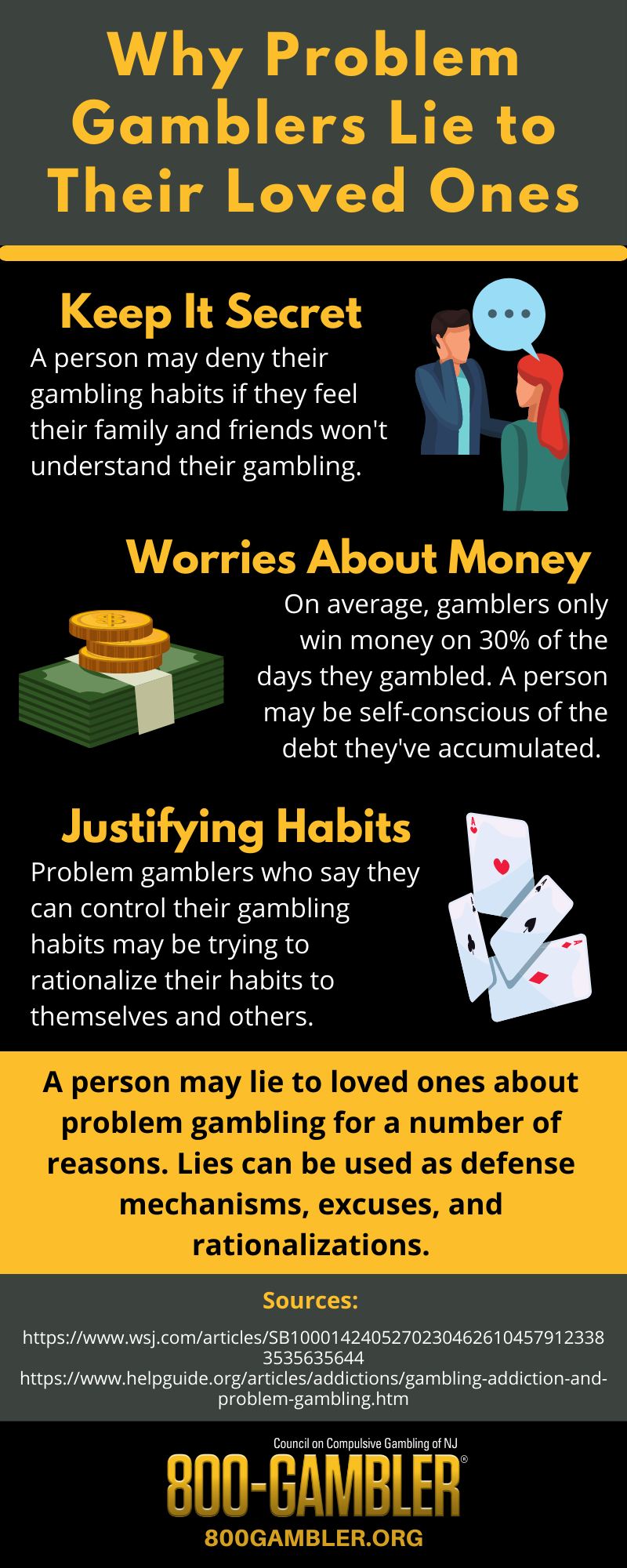If you know people that gamble, they might tell you stories about their big wins, disappointing losses, and other elaborate encounters at the casino. However, how are you supposed to know if a person is lying to you about their gambling habits?
Let’s take a look at some of the common lies problem gamblers tell their loved ones — and sometimes even themselves.

“I don’t have a gambling problem.”
This is one of the most common lies told by gamblers. If someone has a gambling problem, they might outright deny their gambling habits altogether. Even with family members aware of the lie, problem gamblers, much like those that have substance misuse problems, typically will still refuse to acknowledge their gambling problem.
“I didn’t go gambling today.”
A problem gambler may lie and say they didn’t go gambling even if a person knows where they were. In admitting they had been gambling, a problem gambler would be admitting to a loss of self-control and would open themselves to conflict. Problem gamblers may go to great lengths to make up lies and excuses to avoid disagreements.
“I don’t hurt anyone when I gamble.”
As gambling tends to be an individual activity, another common lie told by gamblers is that their gambling is not hurting anyone, even themselves. However, since a person’s continued gambling can lead to them dipping into the funds of loved ones, such as money for food and shelter, their gambling may end up affecting their family in actuality.
“I didn’t take out any money.”
When it comes to gambling, a person may be convinced that the next great jackpot is just around the corner. However, in order to reach that payout, they’ll need to have access to the necessary funds. Problem gamblers may deny borrowing money or taking funds out of a loved one’s savings account to prevent that person from discovering the truth.
“I control my gambling.”
Another common lie that problem gamblers tell themselves is that they can stop gambling whenever they want. By telling this lie, they tell loved ones what they want to hear while also trying to convince themselves that what they’re saying is true.
“This is what happened . . .”
To cover up their debt, a person may tell elaborate, made-up stories about how they lost or spent their money. These lies, even if elaborate, will have no proof behind them. Problem gamblers will tell common lies or even these complex stories as a way to excuse their behavior.
“A friend needed money . . .”
Along with the exaggerated stories and common lies told by problem gamblers, a person may blame the troubles of a friend to cover their debt or explain why they currently don’t have money. While you may want to give a problem gambler the benefit of the doubt, they may continue to use stories or excuses similar to these to evade any serious conflict.
“I know that I need help.”
After a confrontation with a friend or family member, a person may say that they’re aware of their actions and that they want to stop gambling. At the same time, a problem gambler may tell others the common lie that they can be trusted and will never gamble again.
If a problem gambler is telling these lies, they might feel as if they are no longer able to make further excuses for their actions.However, people may believe these common lies told by gamblers when they tell them, which could result in more frequent lies.
If you or a loved one need help with a gambling problem in NJ, don’t hesitate to reach out today. Call or text our 24/7 free helpline at 800-GAMBLER to get access to helpful resources.



